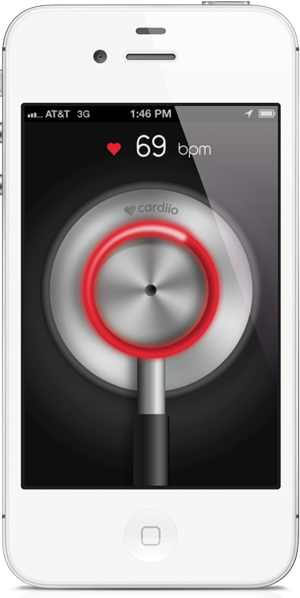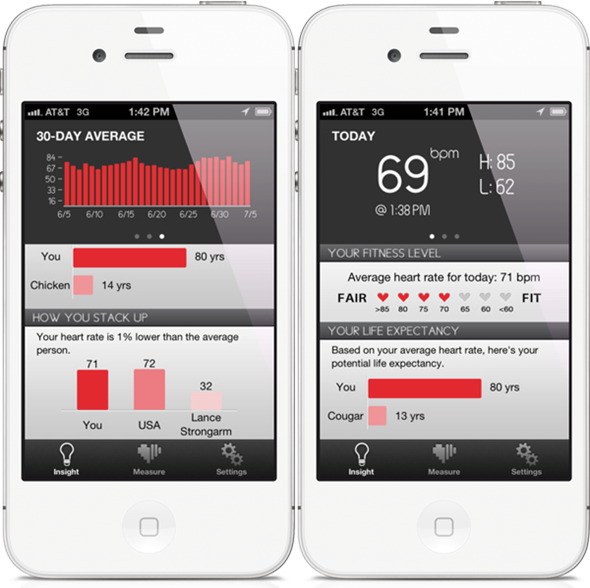Developers and development teams are always attempting to come up with new and interesting ideas for mobile based applications as well as thinking of innovative ways to reinvent things that have already been done in the past. The official iOS App Store is so jam packed full of apps that it can sometimes be difficult for developers to come up with something new, but for those that are willing to invest the time and effort into producing something truly innovative then the rewards more often than not speak for themselves.
![]()
On the face of things, the Cardiio app in the App Store doesn’t sound like it offers any outstanding or new functionality to users as it is designed to give an accurate indication of the user’s heart-rate. There are already plenty of applications in the Health & Fitness category of the App Store that use personal information and intensity levels to perform various calculations such as the users current heart rate or their target heart rate for physical training. However, the Cardiio application is a little different in that it has been designed and developed around cutting-edge research from the Massachusetts Institute of Technology (MIT).

The software, available as an iPhone or iPod touch application, uses the front-facing camera hardware on the installed device to track, read and finally analyze the amount of light that is reflected off the face. This may seem like a wind-up at first glance, but the complex algorithms and backend calculations allow the application accurately measure the users pulse without needing to purchase or connect any additional hardware. One of the reassuring things about Cardiio, is that the studies behind the application have shown that the measured heart rate from the app are within 3 beats per minute of the same rate taken with a pulse oximeter.

Some users will prefer to download the app, scan their face and then sit back and stare at the results as if a tiny slice of magic has happened. On the other hand, some would prefer to actually dissect the app and see what is going on behind the scenes. The functionality is based around MIT Media Lab research and heavily feature the same principles that are adopted within the use of clinical pulse oximeters. When the human heart beats it pushes blood through facial vessels, which in turn causes the vessels to expand as they fill up. The end result is that more light is absorbed meaning there is less light to reflect off the users face, allowing the app to track and analyze what is there.
The simple but very gorgeous user interface of the application is broken down into measuring the hear rate, gaining an insight into the results and a settings panel that provides additional app information. The information overload really comes through the Insights section, with Cardiio giving some nice statistics about life expectancy and how the users results stack up against the averages. Apart from the fact that the app has a very attractive interface, it also goes to show that innovation can be applied to even the oldest concepts.
Download Cardiio for iPhone and iPod touch ($4.99) [iTunes Link].
Be sure to check out our iPhone Apps Gallery and iPad Apps Gallery to explore more apps for your iPhone and iPad.
You can follow us on Twitter, add us to your circle on Google+ or like our Facebook page to keep yourself updated on all the latest from Microsoft, Google, Apple and the web.

